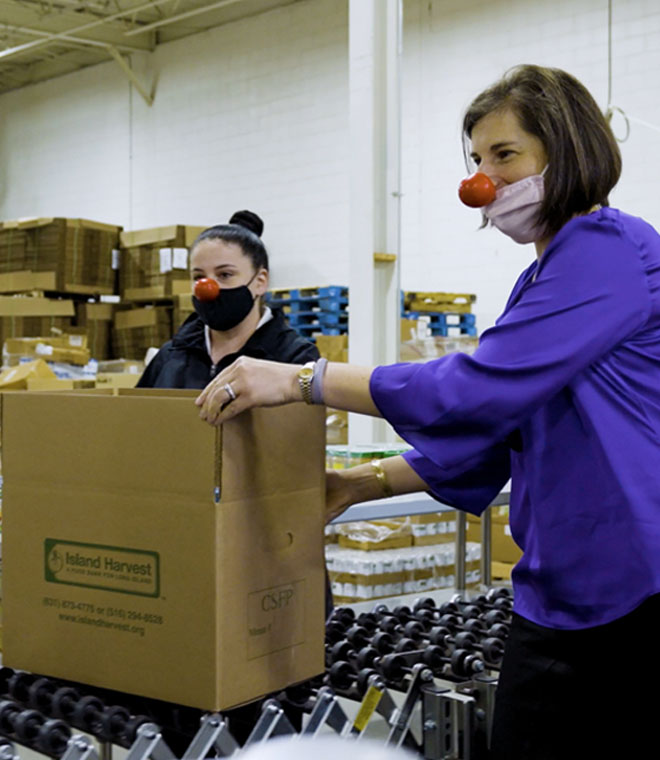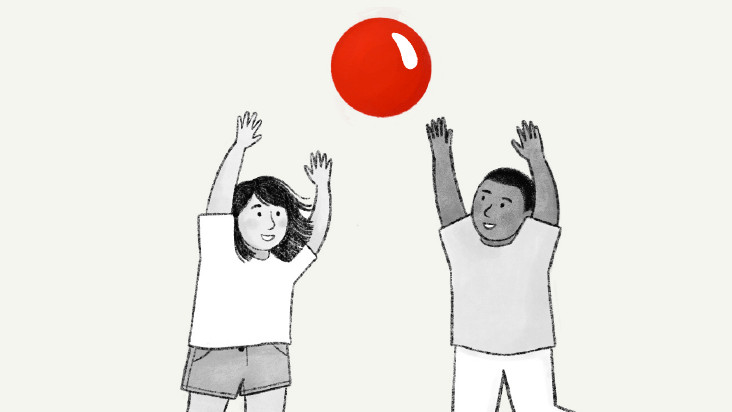Community Stories
7 ways to help kids de-stress and decompress
By Loren M. Blinde, PhD Aug 12, 2022 • 7 min
Busy. Anxious. Overwhelmed. If there’s one feeling nearly everyone can relate to, it’s stress. Although we may not be able to control the stressful events life throws at us, we can find healthy ways to respond to stress. Living through a pandemic and all the pressures that have come from the last two years hasn’t been easy for our kids. But we can help our kids learn how to deal with stress effectively, setting them up to thrive.
What is stress?
Stress is the body’s automatic response to a challenging situation, and it happens to everyone, adults and children alike. Both positive and negative events can cause stress. Gearing up for a birthday party can stress a person just as much as an upcoming test at school. But when our stress levels are too high, or when we feel stressed for too long, it can overwhelm our ability to cope.
What are some key signs of stress in children?
Because kids often don’t realize that they’re too stressed, it’s important for parents to pay attention to signs that stress is negatively affecting their children. Be on the lookout for abrupt changes in your child’s behavior.
Physical “stressed out” signs include:
- Trouble sleeping or nightmares
- Changes in appetite
- Headaches
- Stomach aches or digestive issues
Emotional and mental “stressed out” signs include:
- An increase in angry outbursts or irritability
- New fears or worries
- Increased defiance or stubbornness
- Lack of interest in activities or hobbies
- Clinginess or going back to behaviors from a younger age (called “regression”)
7 ways to help your kids de-stress and decompress
Helping your children find ways to deal with stressful situations effectively can give them some tools to use during the current high-stress time—and whenever stressors or worries make them feel overwhelmed in the future.
- Establish (or reestablish) routines. Sometimes children may feel stressed out because so much is out of their control. Giving them structure they can depend on, whether it’s a consistent after-school caregiver, a set homework time each day or the same story before bed each night, can help them understand what to expect, giving them a sense of security.
- Pay special attention to food and sleep. When children are overwhelmed or depleted by stress, they need to refill their reserves with enough sleep each night and a variety of healthy, nutritious foods each day. Parents and caregivers can prioritize these wellness cornerstones for their children.
- Listen. Sometimes it’s hard for children to find the words to express their worries. It’s common for children to feel like stressful life events (like divorce or an illness in the family) are their fault. As a loving parent or caregiver, you may want to offer advice to your child, but often the best thing you can do—especially at first—is listen.
- Have fun. Making time to play can help your children (and you!) deal with stressful seasons of life. Spend a few minutes blowing bubbles together after dinner, head to a park on Saturday morning, or put on some upbeat music as you all tidy up before school. Investing a few minutes each day in lighthearted play can help everyone feel more positive overall.
- Practice deep breathing. Breathing deeply helps trigger the body’s relaxation response—the natural antidote to stress. Try “box breathing” with your kids:
Breathe in for a count of four
Hold your breath for a count of four after you inhale
Breathe out for a count of four
Hold for a count of four after you exhale - Take care of yourself. If you’re stressed out, you may have less mental and emotional energy available to help your kids cope with their stress. For ideas, check out these tips to improve your everyday mental well-being.
- Laugh together. Put on a funny movie or a family-friendly comedy album. Humor can help relieve stress.
For more resources and tips to help you raise healthy, happy kids, check out The ThreadTM, talk with your healthcare provider or ask your local Walgreens pharmacist.
This article is meant for informational purposes only. Always seek the advice of your physician or a qualified healthcare professional.
Sources:
- https://www.mayoclinichealthsystem.org/hometown-health/speaking-of-health/stressed-out-kids
- https://medlineplus.gov/ency/article/002059.htm
- https://www.health.harvard.edu/mind-and-mood/relaxation-techniques-breath-control-helps-quell-errant-stress-response
- https://health.clevelandclinic.org/box-breathing-benefits/


